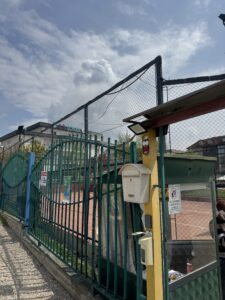The International Learning Group (ILG) School in Pristina, Kosova, a private international institution boasting International Baccalaureate (IB) accreditation, is facing increasing scrutiny over what multiple current and former educators describe as a toxic and retaliatory workplace culture. Despite its ability to attract highly qualified international staff, ILG is experiencing an alarming rate of staff resignations that many allege stems from systemic issues within the school’s administration.
Over the past two academic years, ILG has seen a significant exodus: 18 teachers resigned last year, and 23 have already departed in the current academic year—a tally that includes several senior academic leaders. Interviews with multiple sources, all requesting anonymity due to fear of professional retaliation, suggest a recurring pattern: foreign teachers arrive enthusiastic about contributing to an IB-accredited environment, only to discover a workplace culture marked by fear, micromanagement, and administrative opacity.
“It’s false advertisement to use IB status in the recruitment of teachers, have them uproot their lives from other countries, and subject them to a toxic workplace culture,” said one former teacher who had relocated from North America. “I spent well over €3,000 on moving and resettlement costs. The school assumed no responsibility or accountability.”
The IB label carries significant weight in international education circles, and ILG’s accreditation has been a magnet for seasoned educators. However, some insiders claim that the school’s continued accreditation misrepresents the actual working and learning conditions. According to several staff members, the executive leadership team’s close ties to IB networks have shielded the institution from external scrutiny, despite growing internal dysfunction.
One particularly troubling account involves a teacher from the United States who resigned after just one week due to the environment. This case, among others, underscores the emotional and financial costs endured by international hires who commit to multi-year relocations—often signing year-long leases—only to find the working conditions untenable.
Further compounding the issue is a growing concern for student well-being. With rising turnover among educators, some parents and staff are alarmed about the lack of consistency and stability in the classroom. High staff churn disrupts curriculum continuity and undermines the long-term educational experience promised by IB standards.
Numerous teachers allege that any attempt to voice concerns internally is met with subtle or overt retaliation, contributing to a culture of silence. This fear prevents many from formally reporting issues, and has made collective action virtually impossible within the institution.
Efforts to obtain official comments from ILG School’s executive leadership have thus far gone unanswered. Additionally, IB’s regional office has not responded to inquiries regarding how schools with ongoing personnel and workplace issues are evaluated during accreditation reviews.
As ILG continues to promote itself as a model international school, questions remain about whether its internal practices align with its external image. For now, the gap between accreditation and reality appears wide—and growing.

Editor’s Note: By Jocel Jualo, Investigative Reporter | May 1, 2025
Please Contact our World Newsroom regarding this report: Investigative Team Contact














